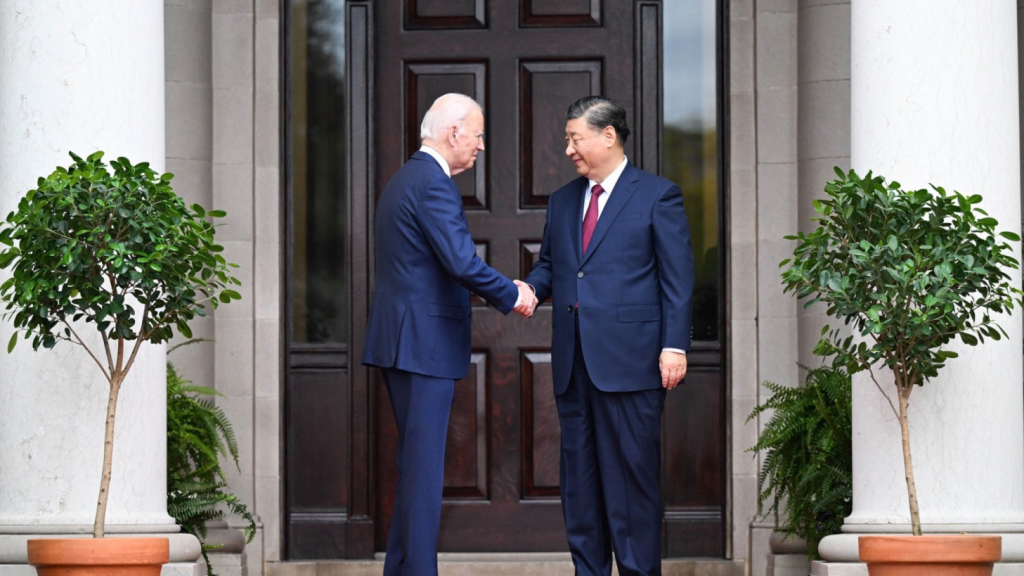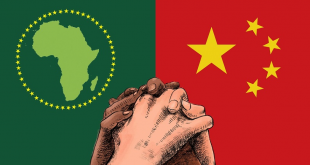Published: April 06,2024

An image posted on X shows Chinese President Xi Jinping shaking hands with U.S. President Joe Biden upon meeting in San Francisco, U.S., November 15, 2023. /@SpokespersonCHN
U.S. President Joe Biden and his Chinese counterpart Xi Jinping held a phone call on April 2 to discuss important issues concerning the two largest economies’ bilateral relations.
For his part, President Xi stressed, according to the Chinese readout of the call, “the issue of strategic perception is always fundamental to the China-U.S. relationship, just like the first button of a shirt that must be put right.”
Indeed, the perception that the U.S. government and civil society have of China is of great importance in defining how the relationship between the two countries moves forward. For Washington, this perception has been based on a serious misunderstanding.
China understands the U.S. quite well. While tensions have been on the rise in recent years in relation to rising U.S. escalations, the Chinese government and Chinese civil society still have respect for the U.S. despite obvious flaws, namely Washington’s propensity to interfere in the internal affairs of other nations and use international law for cynical self-gain.
Yet, there is hope from China’s side. President Xi told U.S. Senate Majority Leader Chuck Schumer last October, “The Thucydides Trap is not inevitable, and Planet Earth is vast enough to accommodate the respective development and common prosperity of China and the U.S.” He said of the U.S. and China: “I am in you, and you are in me,” to create a metaphor of the two’s connection on the world stage.
The U.S., however, does not see it this way. It believes that it can contort international law to fit its agenda, skirt world trade obligations for its own benefit, and simply impose restrictions or sanctions on whoever or whatever it wants to maintain its own strategic dominance. Such a pattern of behavior is both detrimental to the global community and also self-sabotaging, setting the stage for Washington’s inevitable isolation on the world stage probably within a generation.
A textile enterprise’s intelligent workshop in Fuzhou, Fujian Province, China, May 31, 2023. /CFP
For example, the U.S. continues to tighten the screws around China’s high-tech sectors by sanctioning scores of Chinese entities. The U.S. is also upping the ante militarily by causing provocations in the South China Sea and in the Taiwan Straits, even pushing closer to the Chinese mainland’s red line around the Taiwan question.
Meanwhile, the U.S., despite these substantial provocations, has maintained seemingly open communication with Beijing and never resorted to freezing diplomatic relations. Joe Biden has described the relationship between the two countries as the “most consequential relationship” of our time. This was the impetus behind the San Fransisco meeting before the APEC summit last year.
Many have noted, however, that this is not enough. Often compared to the 20th-century Cold War, rising tensions between the two countries do not enjoy the same benefits as those shared between the U.S. and the Soviet Union. For one important example, there are no bilateral forums for limiting military provocations or reducing nuclear weapons production. This raises serious concerns about the risk of strategic miscalculations in the future.
Given this, it is not hard to imagine that more tangible platforms designed to promote peace, people-to-people exchanges, and international cooperation could manifest themselves. Likewise, given the 21st-century conditions that Washington and Beijing exist in today, there is a clear imperative: Climate change, the threat of global pandemics, and emerging security threats, such as terrorism, demand both major powers to cooperate in organized formats.
It is natural that the U.S. and China will compete, and undoubtedly, that competition will be one of the greatest in history, given the strengths that both sides carry across a wide spectrum of dimensions. But in a world where confrontation means suicide, such a thing must be avoided at all costs.
Communication is a positive development – but it is certainly not enough if the world is expected to reliably navigate complex global issues, including those concerning the persistence of organized human life.
Bradley Blankenship, a special commentator on current affairs for CGTN, is a Prague-based American journalist, political analyst, and freelance reporter.
cgtn.com
 Africa -China Review Africa -China Cooperation and Transformation
Africa -China Review Africa -China Cooperation and Transformation
